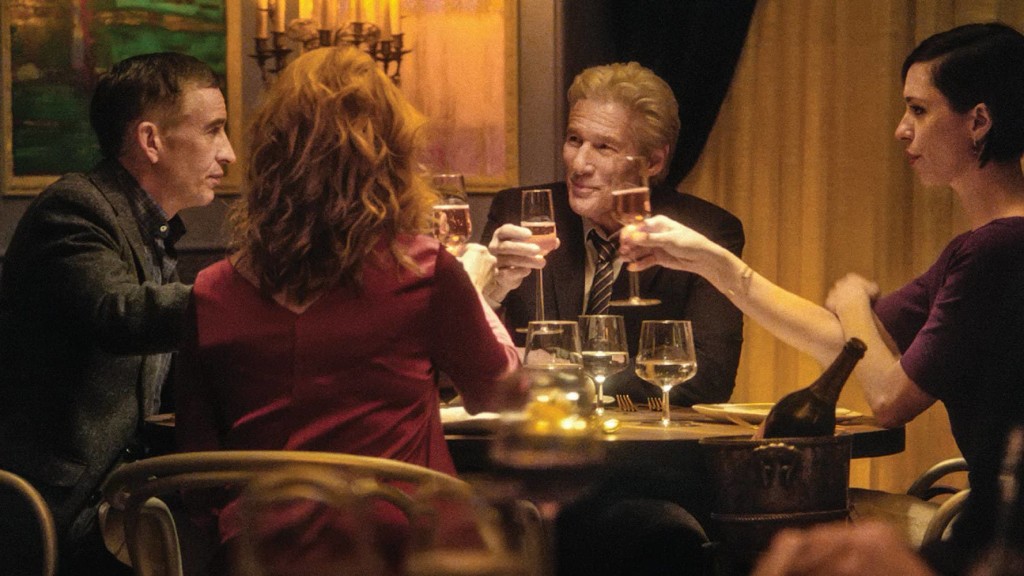
In the self-discovery drama Puzzle, Kelly MacDonald plays a wife and mom who has subordinated all of her own needs and desires to those of her husband and two sons. Utterly selfless, she prepares every meal, performs every task, organizes every event so her husband and two sons and their church community can hum along smoothly – and without appreciation. The phrase “taken for granted” applies to every breath she takes. She receives what seems to be the most random gift, a jigsaw puzzle, and learns that she is a jigsaw puzzle savant. Suddenly, she has found herself something that she does for herself – and she is stunningly good at it.
At this point, she happens into the hitherto unknown world of jigsaw competitions (who knew?) and becomes the teammate of an unhappy divorcee (Irrfan Khan) who appreciates her and opens up new possibilities. With another experience to compares to her domestic drudgery, she realizes that she has grown to be deeply unhappy.
The screenplay was co-written by Oren Moverman (The Messenger, Rampart, Love & Mercy, The Dinner) and Polly Mann, based on Natalia Smirnoff’s 2009 Argentine film Rompecabezas. It’s an intelligent script, filled with telling bits (she has to make her own birthday cake) and authentic interactions to portray the family dynamics. Her hubbie (David Denman) is not really mean; he’s just satisfied with the routine that they have slipped into.
There’s a wonderful scene when the mom is partway along on her road to self-realization. She suggests that the family take a major financial action. The husband says that he’ll think about it. A few days later, without circling back with her, he announces to the family that they will take this action. She is infuriated; he doesn’t understand why – after all, it was her idea. For those of you who haven’t lived this, I can assure you that this is a realistic scenario.
There’s an especially fine thread in which the mother perceives a son’s unhappiness and draws out his real aspirations.
Of course, the audience can see that the protagonist will have choices at the end. She can stay with the husband who has finally come to appreciate her. Or she can go off with the new guy who adores her. What happens at the end defies the conventions of a romantic drama – it’s smart, satisfying and affirms what it is to be your own person.
Puzzle takes its time. I suspect women will stay with its deliberate pace more willingly than will men. That being said, it’s original and cliche-free.

